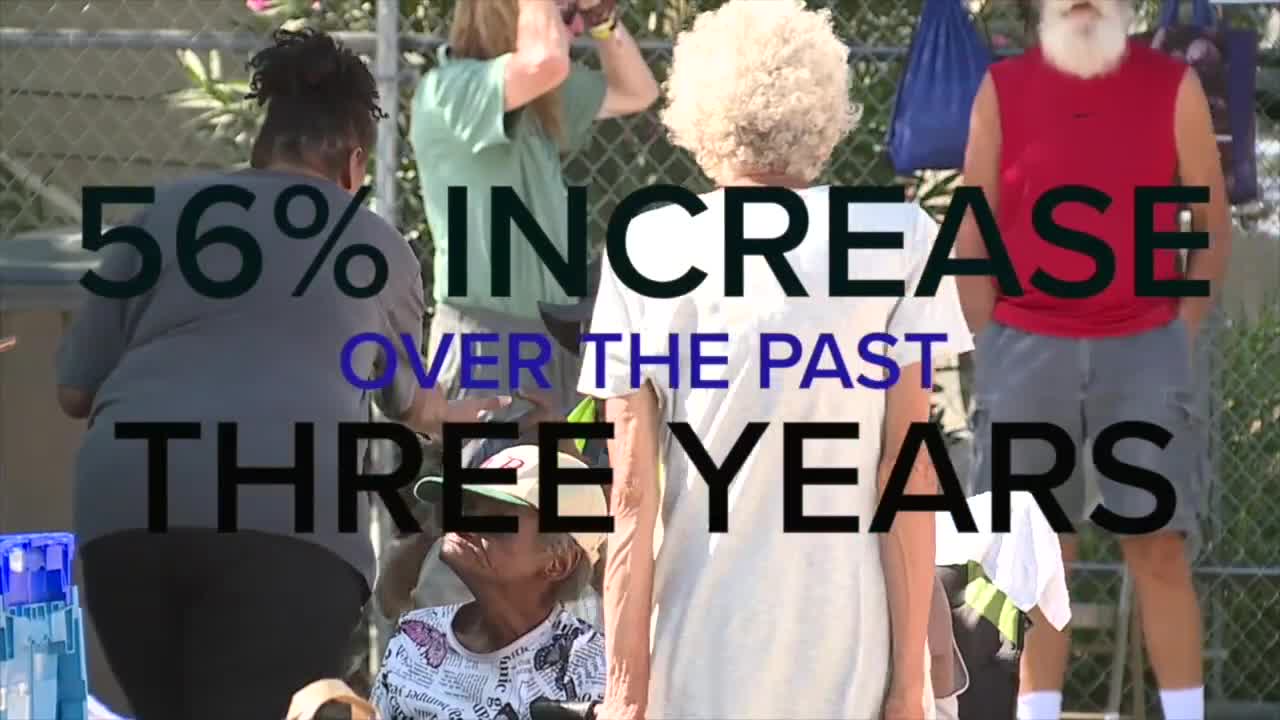Clark County is taking steps to address our homelessness crisis.
With homelessness at a 10-year high here in the county, these new services couldn't come at more crucial time.
Channel 13's Abel Garcia introduces you to a local man experiencing homelessness who gave him a better understanding of the growing problem here in the valley.
"If you can think of hell on earth, that is exactly what's like to be homeless."
Meet Howard Jones, a resident of our city's streets.
His story underscores the critical need for resources in Clark County, especially as we face extreme heat and a growing homeless population.
"It is difficult as a homeless person to really stay healthy out here, especially during the summer in this heat. It's killer, you know," Jones said.
We met Jones at a Touro University mobile healthcare clinic in the historic Westside. Here, homeless people like Jones get free medical care.
While Jones said this helps, he said more services are needed.
"Honestly, bring about more programs, more initiatives for healthcare," he said.
A January survey shows Clark County's homeless population hit a 10-year high of 7,928 people. That's a 56% increase over the past three years.
"It's a war, it's a struggle," Jones said.
The Board of County Commissioners is extending contracts for more living spaces that offer some level of privacy for individuals or families.
These unique care shelters, with over 700 beds, are doubling in capacity.
This expansion will support people facing mental health and substance abuse challenges.
County Manager Kevin Schiller calls this investment a game changer.
"It is obviously a crisis, so that's one reason, but it's very opportunistic. Everything is aligning so we can continuing to build the capacity," Schiller said.
Commissioners also approved Southern Nevada's first crisis stabilization center. Funded with $11.3 million, it will provide crucial psychiatric crisis and detox services, offering an alternative to emergency rooms.
Schiller said they hope this move will help transition many from the streets to permanent homes.
"Then once that starts happening, you see a significant reduction of recidivism, he said.
Jones said these new services will life a burden off his shoulders.
"A lot of times we feel like the city doesn't care about us because of the way we are treated. Not everyone, but certain people in the city. They got these initiatives, trying to do something that gives me hope for the future," he said.
The new crisis stabilization center opens in December 2024 with 24 inpatient beds, expanding to 30 outpatient chairs.




